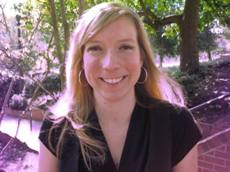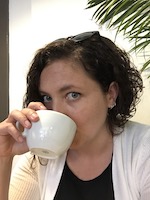As a comprehensive college in New York's state university system, Cortland places a special emphasis on teaching undergraduates. We strive for a careful balance between scholarship and teaching that allows us to bring the latest research into the classroom.
This is certainly the case with Professional Writing. Our teaching emphasizes hands-on practice, where students and faculty work collaboratively to consider how the conversations and interactions that happen in the classroom might transfer to other experiences and contexts — including other disciplines, professional venues, and community engagement. Additionally, many of our courses provide students opportunities to work with faculty on research and other projects: writing grants, editing, and designing publications and websites.
As a well-established program, we view the assessment and development of our program as an integral part of our intellectual work. Our field changes rapidly to meet new economic demands and technological innovations. As such, we remain committed to providing an education that addresses the latest practices in professional writing while remaining solidly grounded in a liberal arts education and the 26 centuries of rhetorical philosophy (dating back to Socrates and Plato) on which our teaching is grounded.
Please feel free to contact any of us to discuss our program.
Kati Ahern
Assistant Professor | [email protected]
Office: Old Main, Room 112C | Phone: 607-753-5945
Kati Ahern comes to professional writing through an MFA in Creative Writing (Fiction) at George Mason University, where she served as editor of the literary journal, Phoebe, as well as a PhD in Communication, Rhetoric, and Digital Media from North Carolina State University. Her teaching and research interests include sound studies, digital environments, and writing theory. At SUNY Cortland she teaches courses such as Technical Writing, Writing in the Digital Age, and Writing Fiction. She has also taught courses at previous universities in Reading and Writing Comics, Theories of Writing, Video Game Narratives, and Writing with Sound. Her main research focus is in understanding the function and influence of nonverbal sounds (like sirens and silence, beeps and buzzes) in soundscapes.
Courses: Technical Writing, Writing in the Digital Age, Writing Fiction
Heather Bartlett
Instructor | [email protected]
Office: Old Main, Room 117-D | Phone: 607-753-2230
Heather Bartlett is an Instructor in English and Professional Writing at SUNY Cortland, where she teaches creative writing and composition. She is the co-founder and co-director of Cortland's visiting writers series, Distinguished Voices in Literature. She also edits the online student journal, Crystallize Review. She holds an MFA in Poetry from Hunter College and is the author of the poetry chapbook, Bleeding Yellow Light (From Yes Press). Her recent poetry, fiction, and nonfiction can be found in the Los Angeles Review, Lambda Literary, Ninth Letter, Quarterly West, Redivider, and other journals and magazines.
Courses: Writing Fiction, Writing Poetry, The Publishing Industry
Laura Davies
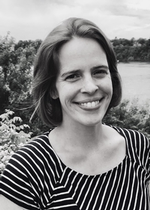
Associate Professor | [email protected]
Office: Old Main, Room 113-D | Phone: 607-753-2074
Laura J. Davies is Associate Professor of English and Director of Campus Writing Programs at SUNY Cortland. Her research focuses on writing teacher pedagogy (K-12 and university-level), student composing and reading practices, theories and practices of writing program administration, and histories of composition and rhetoric. She teaches courses on writing pedagogy, composition history and theory, technical and professional writing, research methodologies, creative nonfiction, and first-year writing. As Director of Campus Writing Programs, she leads SUNY Cortland’s first-year writing program and writing across the curriculum program.
Courses: Teaching Writing, Technical Writing, Advanced Writing Workshop, Creative Nonfiction, Student Teaching Colloquium
Laura Dunbar
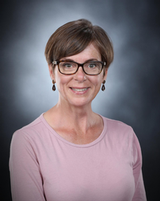
Instructor | [email protected]
Office: Old Main, Room 113-E | Phone: 607-753-4322
Laura Dunbar joined the writing program at SUNY Cortland in the fall of 2018 as a scholar-teacher of writing. Of all the things she finds rewarding about Writing Studies, one of her favorites is being privileged to work with developing writers from every discipline who are at the beginning of their writing journeys. Previously, she taught in and coordinated Canadian Composition and Professional Writing programs, experience that currently guides her mixed methods research into Professional Writing programs in North American higher-education. She also works on local historiographies of writing programs. Her approach to teaching and research in writing is informed by Community of Practice theory, aspects of Rhetorical Genre Theory, and Cultural-Historical Activity Theory. She is a member of the Canadian Society for Discourse and Writing and the (North American) Council for Programs in Technical and Scientific Communication.
Courses: Writing Studies, Advanced Writing Workshop, Business Writing
David Franke
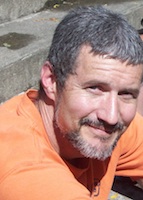
Professor | [email protected]
Office: Old Main, Room 115-F | Phone: 607-753-5945
David Franke directs the Seven Valleys Writing Project and the Professional Writing Program at SUNY Cortland. His research has been on academic writing in K-12 classrooms and the functioning of writing communities on and off campus. At SUNY Cortland he teaches a graduate courses in writing pedagogy to regional K-12 teachers, a course in the history of writing technologies, and a wide variety of technical and creative PWR classes. He is currently working on a sustained place-based nonfiction piece focused on the Midwest. His teaching, writing and scholarship all study how communities think together (usually through writing) and put their knowledge to use in solving real problems.
Courses: Introduction to Professional Writing, Writing Creative Non-Fiction, Technical Writing, Rhetoric, Evolution of Writing
Adrienne Raw
Assistant Professor | [email protected]
